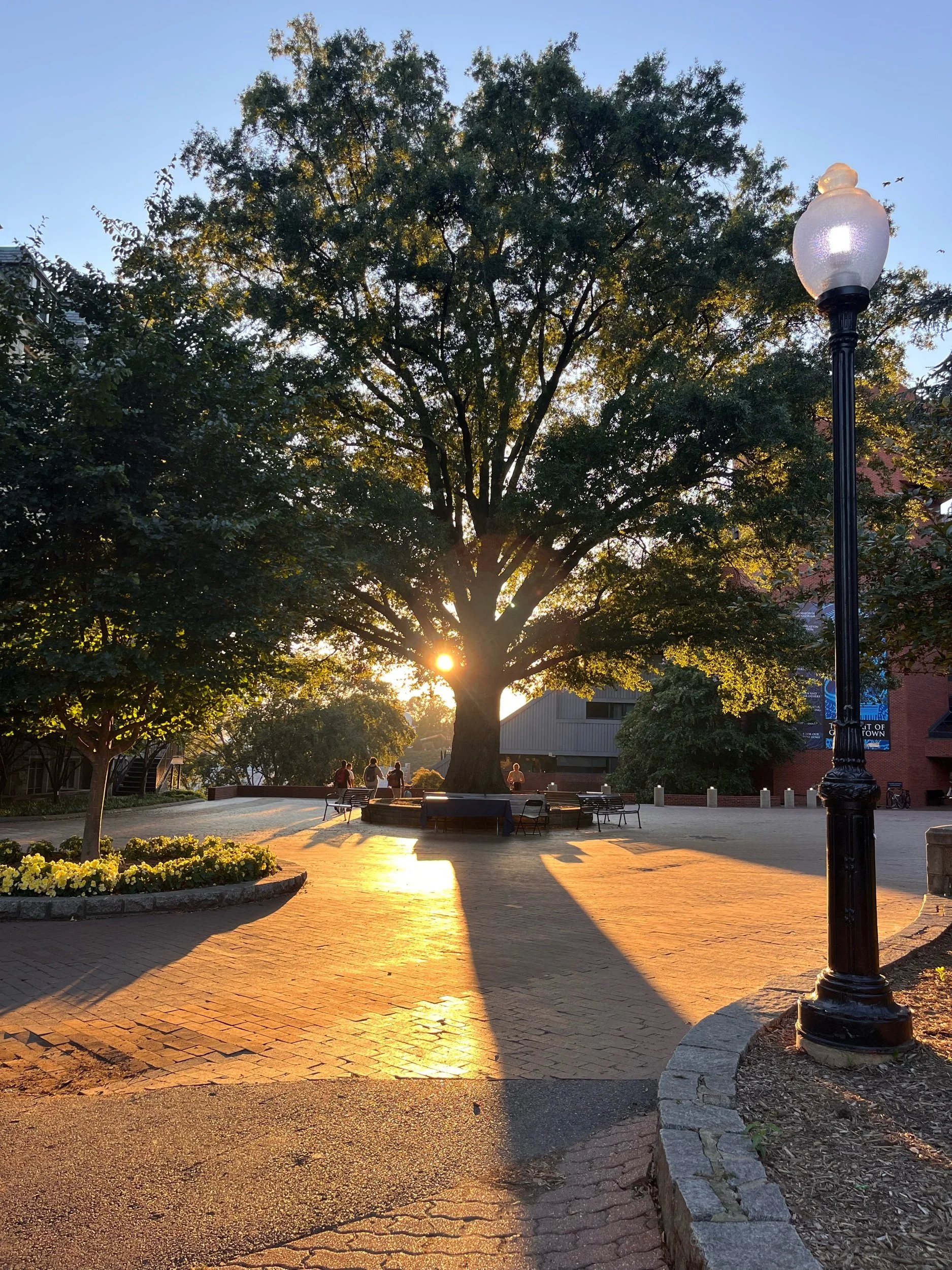This post discusses the state of Mississippi as it appeals to recent news coverage. It focuses on three separate themes: An Election Night Re-Cap of the Recent Runoff Election, Emerging Demographic Change and American Identity
Me and an idealistic group of friends, ready to change the world. Biloxi, MS, Spring 2006
Sweet Ole’ Mississippi
I love Misssissippi. I went to the state 13 years ago to help repair damage after Hurricane Katrina. The people I met -- black & white, were humble folks who were thankful that we were there. The climate, natural beauty & interestingly diverse ways of life I came across fixing roofs and rebuilding houses made me feel proud to be American--and the people we were helping felt proud I was an American too.
Bigotry did exist in the hearts of some people. A woman asked me (oddly) to pray for the safety of a Christian man in Afghanistan with her, while then going on to pray we Muslim heathens saw the light of her one true faith -- awkward.
Mississippi Burning
Fast forward 13 years and a depressing additional 35 pounds on my body, and that sense of divide between Mississippi and the rest of the country has only become more pronounced. As other states in the south have begun to emerge as flagships of the new STEM-focused economy, Mississippi has continued to lag stubbornly behind. It is less educated and poorer than all of its neighbors — ranking last in healthcare, second to last in economy, fourth to last in education and 49th in the nation in opportunity for upward mobility. Yet, somehow, it ranks sixth in quality of life — and 17th out of 50 in social environment, per U.S. News & World Report.
That last ranking-anomaly explains one of two things: why so many Mississippians continue to vote red, despite their state being the butt of national (and often liberal) jokes about their rankings among the other 49 states in the union. Mississippi’s largely rural population of 2.9 million people prefer to be left alone to their own devices. Life is good in the Ole’ South, argue many. Why do outsiders have to come and meddle in Mississippi’s ways?
However, the state clearly has problems, problems that won’t be solved by their pride in being home to the largest Bible-binding factory in the country. The state has some of the worst infrastructure in the country. College attendance is very low, and even though many tech jobs today in the IT field and beyond don’t require expensive and time-consuming liberal arts degrees—the state has a remarkably low penetration of broadband internet. Along with Louisiana, a review of available data from the FCC suggests that Mississippi has perhaps the lowest broadband access of any state in the Old South.
Mississippi Masala
Sarita Choudhury (pictured above) remains my first brown-girl crush.
The dearth of broadband internet availability does prevent successful organizing among minority and immigrant communities. Mississippi. 37 percent of Mississippians are black. Native Americans, Latinos and Asian Americans add a further 3 - 5% to the state population, with Muslims in the engineering, STEM and medical fields increasing annually, creating a growing intellectual class of non-whites. All in all, if demographic trends hold, by the close of the next decade, Mississippi will likely emerge as minority-plurality, if not minority majority.
That should improve race-relations in a state that has notoriously found ways to avoid de facto integration in schools, and about whom more than a few blockbuster films have been made about racial violence, lynchings and cold-blooded murder during and after the civil rights era. Jim Crow never found more fertile soil than the Mississippi Delta, an octogenarian former cropsharer once wryly told me.
Election Night: Hyde-Smith Underperformed
No matter how conservatives tout it, Hyde-Smith under performed this past Tuesday. Mississippi was a state carried by Donald Trump by 16 percentage points in 2016. Hyde Smith only won in an election run-off by 7.8 percentage points. On election night earlier this month, she only came out ahead against Democrat Mike Espy by .9 percent, with GOP State Senator Chris McDaniel playing the role of spoiler by wooing away 16.4% of that night’s vote. That’s an underperformance of 15 points in comparison to Donald Trump, with the special election narrowing the gap between Trump in 2016 and Hyde Smith by 7.2%, or about only half. Here are some key factors why:
Allegations of Racism
It probably isn’t a good idea for any politician in America to be caught dressing up as a confederate soldier. It is an even worse idea for that politician to then be accused of lending vocal support to lynchings. Aside from the obvious bad impression this leaves among black voters in a state that is nearly 1/3 African American, the moral decrepitude and lack of ethical judgement in era of Trump that Hyde Smith showed in both these instances made even deep-red voters in Mississippi cringe. While Trump showing up twice in a single day to rescue his southern belle did help stabilize numbers, Hyde Smith’s standing with Mississippi voters might very well be damaged extensively in her next election campaign in 2021. However, it should be noted that the brother of slain civil rights icon Medger Evers, GOP politician Charles Evers strongly endorsed Hyde Smith in the wake of the discoveries made about her questionable statements and appearances.
Growing dissatisfaction with the GOP
Donald Trump campaigned here for Hyde-Smith because it’s one of the few places Americans still like him. As of October, he enjoys a 59% approval rating in Mississippi. As mind-melting as that might be, the GOP is actually losing ground in the state. Unemployment remains higher than the national average, and manufacturing and farming have both taken a hit in Trump’s trade wars. That has translated to a slow burn of support for the Republican Party which which will finally boil over sometime in the next 6-8 years.
Increasing Voter Diversity
Black Votes Matter. Mississippi’s black voters equal 37% of the electorate — the highest in the country. Two progressive judges and two African-American women judges were elected this cycle. The NAACP claims to have sent 20,000 text messages and knocked on 180,000 doors in the state this November. But the challenge is that black churches, and black voters have long memories & staunchly conservative social mores. Few have forgotten that the racist, pro-segregationist white ruling class who ran the state from the end of Reconstruction until fairly recently were Democrats. Moreover, many churchgoers of all races in Mississippi disapprove of the increasingly social liberal agenda of the left. Abortion aside, the drive for LGBTQ equality alienates many in this socially conservative state. Times are a-changing though, and as a generation of millennial African Americans take over the leadership of the state, a pivot to the left is expected.






